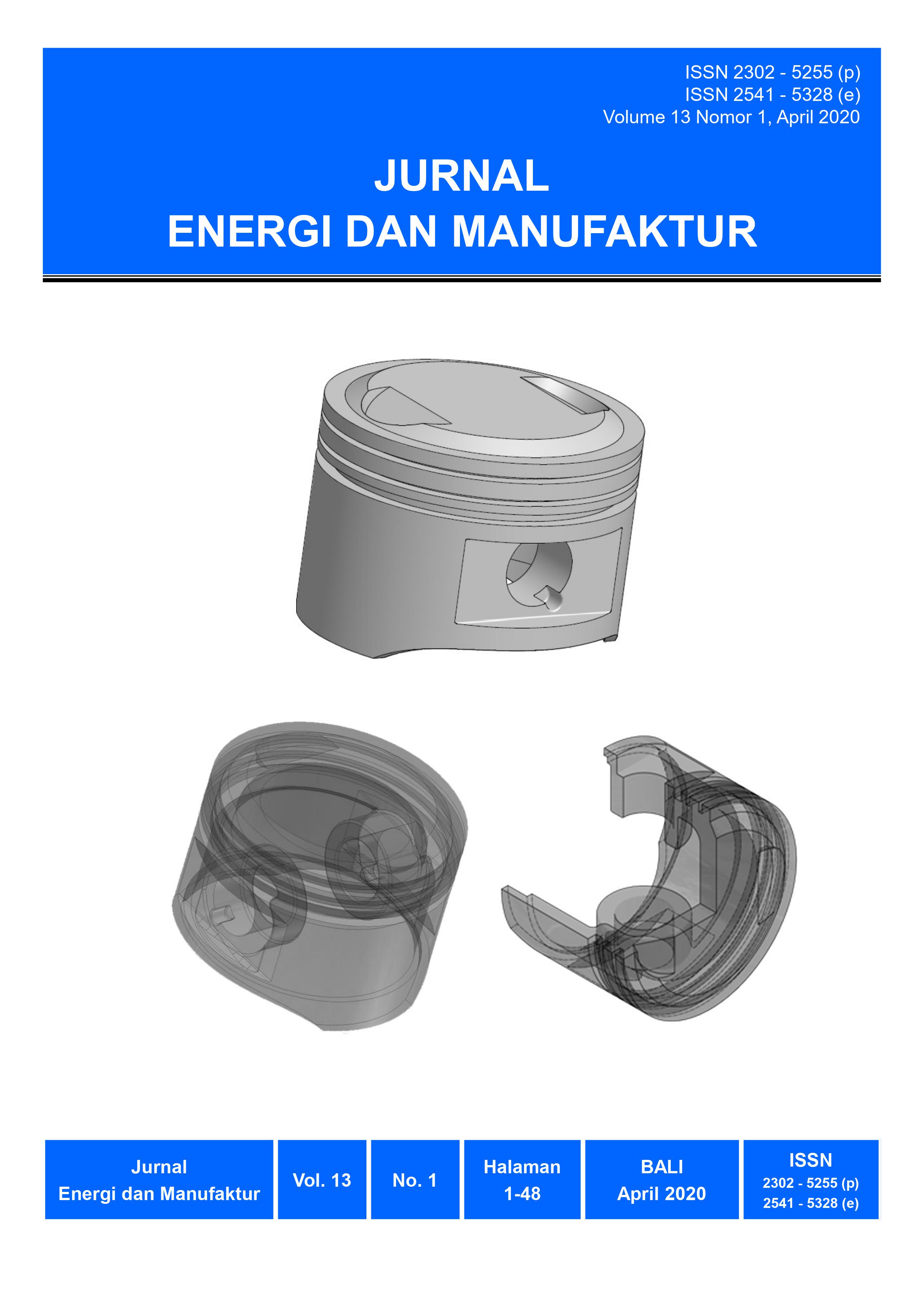Pengaruh katalis zeolit alam pada pirolisis plastik polyethylene terephthalate dan polypropylene
Abstract
Penggunaan plastik akan semakin meningkat seiring dengan bertambahnya jumlah populasi penduduk dan meningkatnya perkembangan teknologi. Meningkatnya sampah plastik menjadi masalah besar bagi kehidupan dan ekosistem, Karena plastik sulit terurai di dalam tanah dan membutuhkan waktu yang lama untuk dapat terurai. Dengan adanya permasalahan tentang banyaknya sampah plastik yang sulit di uraikan maka dapat dilakukan dengan metode pirolisis, metode pirolisis adalah proses pemanasan sampah plastik dengan menggunakan sedikit oksigen atau tanpa oksigen di dalamnya. Untuk memperbaiki minyak hasil pirolisis maka ditambahkan katalis sebagai katalisator sehingga memperoleh hasil minyak pirolisis lebih baik. Tujuan penelitian ini adalah untuk mengetahui perbedaan minyak PET (polyethylene terephthalate) dan PP (polypropylene), untuk membandingkan hasil pirolisis dari penggunaan katalis dan tidak menggunakan katalis terhadap viskositas minyak yang dihasilkan, serta pengaruh waktu pemanasan terhadap hasil volume minyak pirolisis. Dari penelitian yang dilakukan didapatkan hasil minyak terbanyak dengan bahan plastik PP dengan katalis 33 ml atau 8,46 %, PET katalis 23 ml atau 8,943 % dan minyak PP tanpa katalis 76 ml atau 19,26 %, PET tanpa katalis 65 ml atau 17,23%.
The use of plastic will increase along with the increasing population and increasing technological development. Increased plastic waste is a big problem for life and ecosystems, because plastic is difficult to decompose in the soil and requires a long time to be decomposed. With the problem of the amount of plastic waste that is difficult to describe, it can be done with the pyrolysis method, the pyrolysis method is the process of heating plastic waste using little or no oxygen in it. To improve the pyrolysis oil, the catalyst is added as a catalyst to obtain better pyrolysis oil results. The purpose of this study was to determine the differences in PET (polyethylene terephthalate) and PP (polypropylene) oils, to compare the results of pyrolysis from the use of catalysts and not use catalysts to the viscosity of the oil produced, as well as the effect of heating time on the results of the pyrolysis oil volume. The results of the research showed that most PP plastic catalyst oils were 33 ml or 8.46%, catalyst PET 23 ml or 8.943% and PP oil without catalyst 76 ml or 19.26%, PET without catalyst 65 ml or 17.23%.
Downloads

This work is licensed under a Creative Commons Attribution-NonCommercial-ShareAlike 4.0 International License.









